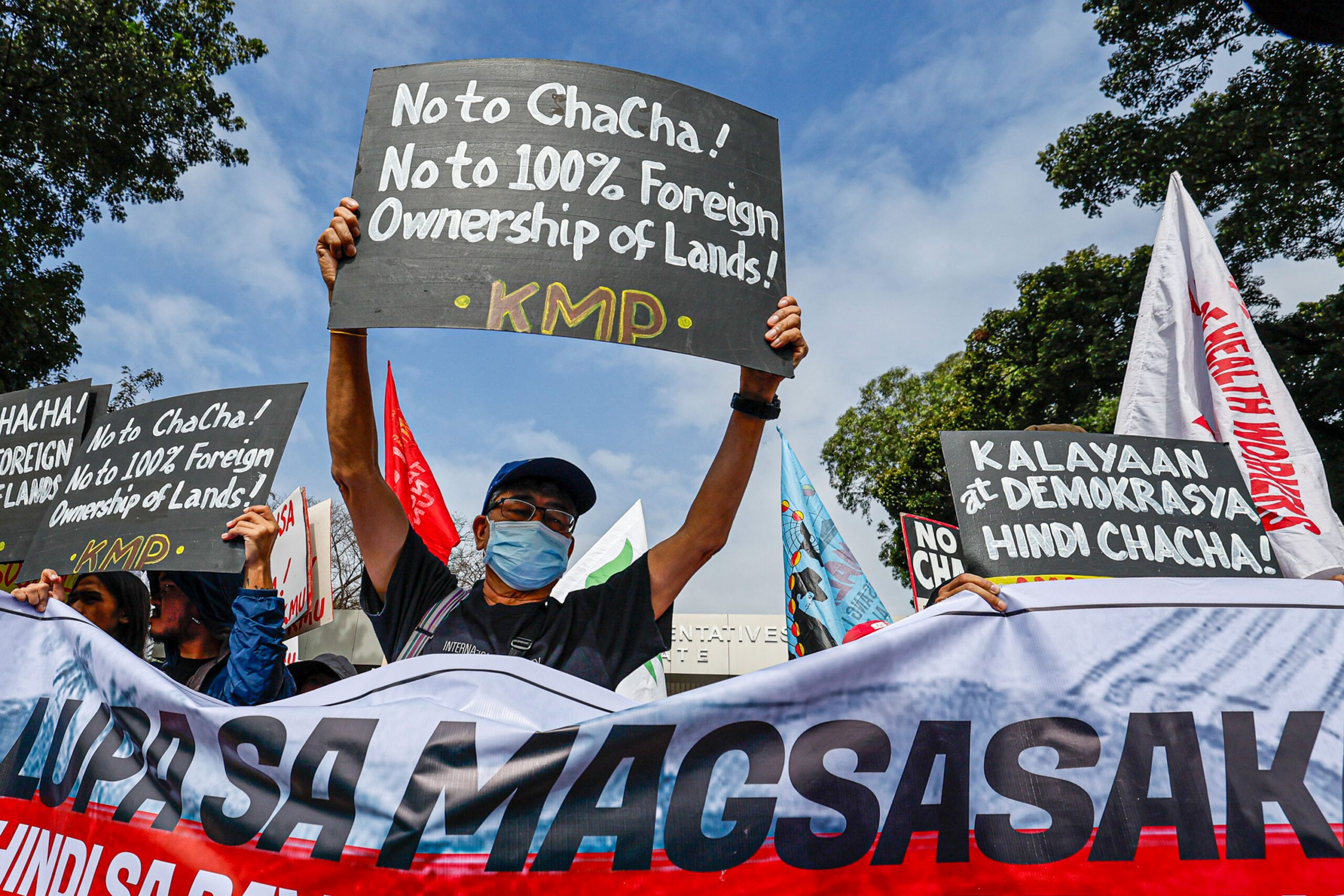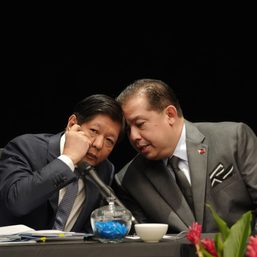SUMMARY
This is AI generated summarization, which may have errors. For context, always refer to the full article.

MANILA, Philippines – After six days of holding marathon hearings as a House committee of the whole, lawmakers on Wednesday, March 6, adopted a resolution allowing foreign investments to the country’s public utilities sector, education, and advertising.
Resolution of Both Houses No. 7 (RBH7) inserts the phrase “unless provided for by law” in clauses on ownership. Voting via viva voce, House lawmakers have adopted the RBH7 on first reading just two weeks after deliberations started at the committee-level.
While the resolution was approved by a majority vote, four opposition lawmakers voted against it, namely:
- Albay 1st District Representative and Liberal Party president Edcel Lagman
- House Deputy Minority Leader France Castro of ACT Teachers
- House Assistant Minority Leader Arlene Brosas of Gabriela
- Kabataan Partylist Representative Raoul Manuel
“Resolution of Both Houses No. 7 is flawed both procedurally and substantially,” Lagman said in a statement, pointing out that even the approved committee report failed to discuss the presentations and position papers submitted before the committee in the past two weeks.
Fourth mode of amending the constitution?
In voicing his objection to the committee approval of RBH7, Kabataan Representative Raoul Manuel flagged the procedure as he noted that House rules only allow congressmen to propose amendments.
“Pero base sa naging interpellations natin, ang ginagawa natin ay adoption ng mismong proposed amendments to the Constitution,” Manuel said.
(But based on our interpellations, what we’re doing is the adoption of the actual amendments to the Constitution.)
RBH7 is a “clone” of the resolution filed by the Senate in January, but the House version notes that both houses would be voting jointly. Congressmen took the “fourth” route to amend the constitution — which is by treating amendments as legislation.
Former chief justice Reynato Puno also flagged this last week, saying lawmakers may face a constitutional challenge. (READ: Years after his death, lawmakers summon the great Father Bernas SJ)
“Wala sa konstitusyon ‘yung ginawa natin na pamamaraan na pag-aamyenda o pagrerebisa ng anumang probisyong sa ating Konstitusyon,” Castro said.
(What we did is not provided in the Constitution as a way to amend or revise it.)
‘Unless otherwise provided by law’
Opposition lawmakers also raised red flags over the “unless otherwise provided by law” insertion in the clauses discussing ownership or control over institutions in public utilities, basic education institutions, and advertising firms.
Lagman said this may “[put] prospective foreign investors in the dark” since the phrase puts them at the will of Congress.
“While RBH7 does not directly delete the constitutional restrictions on foreign ownership, it transfers to Congress the power to do so through legislation,” Brosas said.
“[The phrase] practically allows Congress to change the Constitution whenever it wants to,” she added.
Lack of data
The lawmakers cited the lack of data that would support claims that this push to further open up the economy to foreign investors would be beneficial for the country.
“It all lies in addressing what is hindering investors from going to the Philippines, Lagman said. “The conducive economic environment for foreign direct investments (FDIs) has yet to be put in place by addressing the problems of ease of doing business, rampant official corruption, unpredictability of government policies, slow internet speed, and high power cost.”
“Mababa pa rin ang standard of living o ng pamumuhay ng ating mga mamamayan (We still have a very low standard of living),” Castro added.
Next week, debates on RBH7 will continue in the House plenary. Deputy Majority Leader Neptali “Boyet” Gonzales II said lawmakers are hoping the resolution would be approved on second reading by March 13. – Rappler.com
Add a comment
How does this make you feel?





There are no comments yet. Add your comment to start the conversation.